#conspiracy thoughts
Text
There is, hopefully, only one conspiracy I ever bought into enough that could have been worrying. I distinctly remember the what, when, and how. The what: That the fluoride in our water supply allows for government mind control at worst, and makes us more docile at best. The when, 14 if I’m being kind to myself. Back when I believed I was significantly smarter and cleverer than I actually am. A CNN article I read on a high school computer because I thought that made me smarter than my fellow students who played games or tried to look up porn. Not much of a reason to feel superior, but I needed that feeling. Back when I was far more afraid about confronting what I actually am. Just average, maybe less so.
The article was fairly simple in its scope, the writer wanted to go into the subject with an open enough mind to listen to some of these conspiracy theorists. Quite respectable actually, I don’t think I have the patience for that. And one thing that the writer admitted… that he, and by extension I, had no idea what went into the process of preparing the water that comes out of our tap.What is the government doing to that water? What are companies doing to that water? And to the writer's credit he or she went into a fair bit of the details of that subject.
How water treatment plants remove pollution from industrial waste run off, how it removes our own excrement and piss before putting that water back into fresh water supplies or the ocean. It's quite an interesting process that is crucial to stopping diseases such as cholera. But again… I was 14 and in desperate need of an ego boost. So through the little bit of reading I actually paid attention to, a shame or I might have remembered the person’s name or the article title, I discovered a tiny bit of fluoride is added to the water heading into our tap. How much? Well until 2015 it was 1.2 grams per fluid liter of water. According to myself, who is not great at math, there is at most 1.2 parts fluoride for every thousand parts water. Which then went down in 2015 to .7 parts per thousand parts of water.
To illustrate that as best as I can, the average beer bottle is at most 385ml or 13 fluid ounces. So… if you took that beer bottle, filled it with water (I know, to many of you a travesty), you’d have a total of .27 ml of fluoride or .0091 fluid ounces in that bottle. To help you visualize that, half a raindrop of fluoride is in that beer bottle. One half of one raindrop.
Again, I was 14, and too afraid of being seen as common, or average, or worse… less than average . So I ignored the facts. I didn’t care, I felt smart, I was slightly more powerful than my fellow students to know that fluoride was added to the water before it entered my kitchen sink. I didn’t know what it was either, or at least I didn’t think I did. Thankfully I never dug deep enough into that rabbit hole to become completely immune to sense. So when I asked my parents what Fluoride was… they answered me seriously. It was the stuff the dentist used to finish cleaning my teeth, teeth that had no cavities in it because I regularly brushed my teeth with toothpaste that also contained fluoride.
From there the whole thing started to fall apart. If Fluoride was being used to make me more docile, why after regularly dosing myself with far more effective quantities than what was in tap water for my whole life… was I ready to “fight the power” over it? If it was really controlling my mind it wasn’t doing a very good job of it. I did take it a step farther, I went a week without brushing my teeth and for an entire day chose not to drink liquids of any kind. Cause maybe if I got it all out of my system it’d make sense to me, that I’d see behind the curtain and realize that I was right to believe this. I don’t know if my parents noticed that, but what I did notice… was that nothing changed. I was still… me, still myself, not as clever or smart as I thought I was. My eyes were open though, I could see myself as… average, maybe even less at the time.
It wasn’t until four years later that I came across the darker side of conspiracy theories, the abandonment of logic, often by people whom you would think have the intelligence to discern the truth.
My grandfather was a physicist, one with enough knowledge and skill in studying the world that he was part of the team that developed radar technology for America during the Cold War. The systems that are used to guide the missiles that could end the world at any moment was part of his resume. The man had a Marine bodyguard with him whenever he was out of the country, whose sole duty was to kill my grandfather in case the Soviets or Chinese wanted to steal the secrets to America’s radar detection network at the time. He is probably still the second smartest person I have ever met, and that’s of course admitting that I’m more biased towards his daughter, my mother. And he believed with absolute surety that now Former President Barack Obama wasn’t an American citizen and maybe a Muslim plant to destroy the nation. And I was too afraid to ask him why.
I don’t need to go into how that former President Obama is in fact a natural born citizen. Or at least I hope I shouldn’t have to? His father was an American citizen, who married a Keyan woman, who then gave birth to now former President Obama in Hawaii. These are… facts. As factual as the knowledge that your body needs water to live. That’s how deep the discussion had to go and there are still people who think that Obama was a Musilm immigrant who stole the Presidency away from Christianity, dealing a blow against the Christ loving people of America.
And my Grandfather might have been one of them. A man who I have admired for his wisdom and raw intelligence. Whom in spite of his coarse attitude from having a childhood that saw the Depression, World War 2, and had to raise children through the Cold War. Is a kind, and empathetic person that only now do I have the sense to see. Yet when this topic of conversation came up, I couldn’t tell you what my grandfather feared about then presidential candidate Barack Obama.
I could tell you what I was afraid of as an 18 year old fresh out of high school, I had a strong belief that those in the News media need to be brave enough to ask powerful people questions that challenge their points and beliefs of their viewers and those they talk to. I believe that even more so now. So as I watched so many journalists and people get swept up in the charisma, intelligence, and hype of Obama. I was afraid of what might happen if he could keep the level of control over the news during his presidency. An ultimately pointless fear, that was basically blown away after the first hundred or so days in office.
But for my Grandfather. That… wasn’t it, during the whole eight years I think at times he believed that President Obama was a secret Muslim agent, or incompetent, or hated the “American way”, but I don’t know. I know he was frustrated by some of the more absurd “scandals” of the Obama Presidency. Such as the Tan Suit incident, one of several fistbump incidents, the political “travesty” that was the Date Night scandal, and the death of the presidency because of ordering Di-jon mustard for his burger. But… he seemed to believe that all of that was a calculated distraction, to keep people from thinking about how dangerous Obama really was. And I have no idea why?
I’ll never get to know the reason either. He passed away while battling brain cancer a while ago. Leaving that question unanswerable.
That kind of fear I’ve come across again and again. Either in person or through observation. One of the most chilling ones was watching on the news thousands of angry, afraid, men chanting in Charlottesville Virginia “Jews will not replace us.” As of Writing this… that was almost seven years ago. Yet I still feel like I need to state that about .16% of the world population is Jewish. There are actually a million more Mormons in the world than Jews and I don’t see anyone stating the Mormons are going to replace us all. Yet fear would ignore that, fear has ignored that and likely still will. I wish I could sit some with some of these people and talk about why they choose to fear others. What is it that they’re afraid of themselves? That maybe their own feelings of inadequacy have everything to do with themselves and not others? That the failings in their life are in fact their own failings, or failings of people like them?
Fear given an easy out will always become hatred, and to give credit to my Grandfather. His fear never became that. Hatred was not something that came naturally to him. But were his fears about Obama hiding something else? Because my fear of Fluoride in the water was hiding my own insecurities about myself. Because at the end of the day… I, and you, and my Grandfather, are just themselves. I’m just me. Not as smart, not as special, as I think I am. I’m just… average. And isn’t that terrifying?
(Because this one requires some sources. Here’s the link to the google doc I wrote it all on with the sources attached.
https://docs.google.com/document/d/1DBiWEkxlCczxnIzXsfhu1txdklJJauMHW0inX17Zpdw/edit?usp=sharing
Enjoy!)
4 notes
·
View notes
Text

HUUHH ❤️⁉️
#they are also both bumbling bisexuals what’s going on here this is a conspiracy#I just wanted to scribble a thought that came to my head#I have to leave soon byeee#the legend of zelda#legend of zelda#skyward sword#breath of the wild#tears of the kingdom#zelink#link#zelda#peachie scribbles
2K notes
·
View notes
Text
The fandom echo chamber: fanon, microanalysis and conspiracy brain
As someone who has been in fandom spaces, on and off, for 20 years, I find some fascinating trends popping up in the last decade that I thought to be fandom-specific but clearly aren’t. So, I would like to do a little examination of where those things come from, how they are engaged with, and what it says about the way we consume media. This is a think piece, of sorts, with my brain being the main source. As such, we will spend some time down the memory lane of a fandom-focused millennial.
This is largely brought about by Good Omens. But it’s also not really about Good Omens at all.
Part one. Fanon.
The way we see characters in any story is always skewed by our very selves. This is a neutral statement, and it does not have a value judgement. It’s simply unavoidable. We recognise aspects of them, love aspects of them, and choose aspects of them to highlight based entirely on our own vision of the universe.
Recognition comes into this. There is a reason so many protagonists of romance novels have a “blank slate” problem. Even when they do not, we love characters who are like us or versions of us that we would like to be. And when we say “we”, I also mean, “me”.
(I remember very clearly this realisation hit me after a whole season of Doctor Who with writing which I hated utterly when I questioned why I still clung so incredibly hard to Clara Oswald as my favourite companion. Then I looked at myself in the mirror. Oh. Well. That would do it, wouldn’t it?)
Then, there is projection, and, again, this is a neutral statement. Projection exists, and it is completely normal and, dare I say it, valid way of engaging with — well, anything. Is the character queer? Trans? Neurodivergent? Are they in love? Do they like chocolate? Are they a cat person? Well, yes, if this is what the text says, but if the text does not say anything… You tell me. Please, do tell me. Because, in that moment of projection, they are yours.
And then, there is fandom osmosis, and that is the most fascinating one of them all, the one that is not very easy to note while you are inside the echo chamber. It’s the way we collectively, consciously or not, make decisions on who or what the characters are, what their relationships are, and what happens to them.
(Back when I was writing egregiously long Guardian recaps on this blog I actually asked if Shen Wei’s power being learning actually was stated anywhere in the canon of the show. Because I had no idea. I have read and reread dozen of fanfics where that is the case, and at some point through enough repetition, it became reality.)
We are all kind of making our own reality here, aren’t we?
Back when things were happening in a much less centralised manner - in closed livejournal groups, and forums of all shapes and sizes - I don’t remember there being quite as much universally agreed upon fanon. Frankly, I don’t remember much of universally agreed upon anything. But now, everything is in one place: we have this, and we have AO3, and it’s wonderful, it really is so much easier to navigate, but it’s also one gigantic reality-shifting echo chamber, with blogs, reblogs, trends, and rituals.
Accessibility plays its part, too. If you were, say, in Life on Mars (UK) fandom between seasons, and you wanted to post your speculation fic, you had to have had an account, and then find and gain access to one of the bigger groups (lifein1973 was my poison, but ymmv), and then, if you feel brave you may post it, but also, you may want to do so from your alt account if you wanted to keep yours separate, and then you would have to go through the whole process again. And I’m not saying that fan creations then were somehow inherently better for it than fan creations now (although Life on Mars Hiatus Era is perhaps a bad example - because some of the Speculation Fic there was breathtaking), but there is something to say about the ease of access that made the fandoms go through a big bang of sorts.
(I mean, come on, I can just come here and post this - and I am certain people will read it, and this blog is a pandemic cope baby about Chinese television for goodness sake.)
The canon transformations that happen in the fandom echo chamber truly are fascinating to witness as someone who is more or less a fandom butterfly. I get into something, float around for a bit, then get into something else and move on. I might come back eventually when the need arises, but I don’t sustain a hiatus mind-state. This means that when I float away and return, I find some very intriguing stuff.
Let’s actually look at Good Omens here. Season two aired, and I found it spectacular in its cosy and anguished way; deliberately and intelligently fanfic-y in its plot building; simple but subversive, and so very tender. (I will have to circle back to this eventually, because, truly, I love how deliberately it takes the tropes and shatters them - it’s glorious). And, to me - a person who read the book, watched the first season, hung around AO3 for a few weeks and moved on - absolutely on-point in terms of characterisation.
So imagine my surprise when the fandom disagreed so vehemently that there are actual multi-tiered theories on how characters were not in possession of their senses. Nothing there, in my mind, ever contradicted any of the stated text, as it stood. This remained a strange little mystery until I did what I always do when I flutter close to an ongoing fandom.
I loaded AO3 and sorted the existing fic by popularity. And there it was, all there: the actual earth-shattering mutual devotion of the angel and the demon; willingness to Fall; openness and long heart-aching confession speeches. There was all of the fanon surrounding Aziraphale and Crowley, which, to me, read as out of character, and to one for whom they became the reality over the last four years, read as truth.
Again, only neutral statements here. This is not a bad thing, and neither this is a good thing, this is just something that happens, after a while, especially when there are years for the fandom-born ideas to bounce around and stew. I can’t help but think that so much of what we see as real in spaces such as this one is a chimaera of the actual source and all the collective fan additions which had time and space to grow, change, develop, and inspire, reverberating over and over again, until the echoes fill the entirety of the space.
Eventually, this chimaera becomes a reality.
Part two. Microanalysis
Here are my two suppositions on the matter:
1. Some writers really love breadcrumb storytelling.
Russel T Davies, for instance, on his run of Doctor Who (and, if you are reading it much later - I do mean the original one), loved that technique for his seasonal arcs. What is a Bad Wolf? Who is Harold Saxon? Well, you can watch very very carefully, make a theory, and see it proven right or wrong by the end of the season.
Naturally, mystery box writers are all about breadcrumb storytelling: your Losts and your Westworlds are all about giving you snippets to get your brain firing, almost challenging you to figure things out just ahead of the reveal.
2. We, as humans, love breadcrumbs.
And why wouldn’t we? Breadcrumbs are delicious. They are, however, a seasoning, or a coating. They are not the meal.
Too much metaphor?
Let’s unpack it and start from the beginning.
Pattern recognition colours every aspect of our lives, and it colours the way we view art to a great extent. I think we truly underestimate how much it’s influenced by our lived experiences.
If you are, broadly speaking, living somewhere in Western/North-Western Europe in the 14th century, and you see a painting in which there is a very very large figure surrounded by some smaller figures and holding really tiny figures, you may know absolutely nothing about who those figures are, but you know that the big figure is the Important One, and the small ones are Less Important Ones, and the tiny ones are In Their Care. You know where your reverence would lie, looking at this picture. And, I imagine, as someone living in the 14th century, you may be inspired to a sense of awe looking at this composition, because in the world you live in, this is how art works.
If you, on the other hand, watch a piece of recorded media and see the eyes of two characters meet as the violins swell, you know what you are being told at that moment. You don’t have to have a film degree to feel a sort of way when you see a green-tinged pallet used, when cross-cuts use juxtaposing images, or notice where your focus is pulled in any given shot. This stuff - this recognition of patterns - has been trained into us by the simple fact that we live in this time, on this planet, and we have been doing so long enough to have engaged recorded media for a period of time.
As humans, we notice things. Our brains flare up when they see something they recognise, and then we seek to find other similar details and form a bigger picture. This often happens unconsciously, but sometimes it does not. Sometimes we do it on purpose: finding breadcrumbs in stories is a little bit like solving a mystery. It allows us to stretch that brain muscle that puts two and two together. It makes us feel clever.
So yes, we love breadcrumbs, and, frankly, quite a lot of storytelling takes advantage of this. It’s very useful for foreshadowing, creating thematic coherence, or introducing narrative parallels and complexity. It’s useful for nudging the viewer into one or the other emotional direction, or to cue them into what will happen in the next moment, or what exactly is the one important detail they should pay attention to.
Because this is something media does intentionally, and something we pick up both consciously and not, it is very hard to know when to stop. We don't really ever know when all of the breadcrumbs have been collected. It becomes very easy to get carried away. There is a very specific kind of pleasure in digging into content frame by frame, soundbite by soundbite, chasing that pleasure of finding.
But it is almost never breadcrumbs all the way down. They are techniques to help us focus on the main event: the story. I truly believe those who make media want it to reach the widest possible audience, and that includes all of us who like to watch every single thing ever created with our Media Analysis Goggles on and those who are just here to enjoy the twists and turns of the story at the pace offered to them. And I think, sometimes in our chase to collect and understand every little clue we forget that media is not made to just cater for us.
One can call it missing a forest for the trees. But I would hate to mix my metaphors, so let’s call it missing a schnitzel for the breadcrumbs.
Part three. The Conspiracy Brain.
If you are there with me, in the midst of the excited frenzy, chasing after all those delicious breadcrumbs, then patterns can grow, merge together, and become all-encompassing theories. Let’s call them conspiracy theories, even though this is not what they truly are.
So, why do we believe in conspiracy theories?
One, Because We Have Been Lied To.
All conspiracies start with distrust.
If you are in fandom spaces - especially if you are in fandom spaces which revolve around a queer fictional couple - especially-especially if you have been in such spaces for a period of time, you have most certainly been lied to at one point or another.
We don’t even have to talk about Sherlock - and let’s not do that - but do you remember Merlin? Because I remember Merlin. Specifically, I remember the publicity surrounding the first season, with its weaponised usage of “bromance” and assertions that this whole thing is a love story of sorts, and then the daunting realisation that this was all a stunt, deliberately orchestrated to gather viewership.
And, because we were lied to in such a deliberate manner for such an extensive period of time, I genuinely believe that it forever altered our pattern recognition habits, because what was this if not encouragement to read into things? Now we are trained to read between the lines or see little cries for help where they might not be. Because we were told, over and over again, that we should.
(Yes, I think we are all existing in these spaces coloured by the trauma of queer-bating. I am, however, looking forward to a world where I can unlearn all of that.)
Two, Cognitive Dissonance.
The chain reaction works a bit like this: the world is wrong - it can’t possibly be wrong by coincidence - this must be on purpose - someone is responsible for it.
Being Lied To is a preamble, but cognitive dissonance is where it all originates. In so many cross-fandom theories I have noticed a four-step process:
A) this is not good
B) this author could not have made a mistake
C) this must be done on purpose
D) here is why
(Funny thing is, I have been on the receiving end of the small conspiracy spiral, and it is a very interesting experience. Not relevant to this conversation is the fact that a lot of my job revolves around storytelling. What is relevant is that my hobbies also revolve around storytelling. And one of them is DnD. Now, imagine my genuine shock when one of the players I am currently writing a campaign for noticed a small detail that did not make a logical sense within the complexity of the world, and latched on to it as something clearly indicating some kind of a secret subplot. Their thinking process also went a bit like this: this detail is not a good piece of writing — this DM knows how to tell stories well — this is obviously there on purpose. It was not there on purpose. I created a clumsy shorthand. I erred, in that pesky manner humans tend to. And, seeing this entire thought process recited to me directly in the moment, I felt somewhere between flattered and mortified.)
This whole line of thinking, I think, exists on a knife’s edge between veneration and brutal criticism, relentlessly dissecting everything “wrong”, with a reverent “but this is deliberate” attached to it like a vice, because it is preferable to a simple conclusion that the author let you down, in one way or another.
Three, Intentionality
I believe that there is no right or wrong way of engaging with stories, regardless of their medium, and assuming no one gets hurt in the process. While in a strictly academic way, there is a “correct” way of reading (and reading into) media, we here are largely not academics but consumers; consumption is subjective.
However, this all changes when intentionality is ascribed.
The one I find particularly fascinating is the intentionality of “making it bad on purpose” because, as open-minded as I intend to always be, this just does not happen.
It certainly does not happen in long-form media. Even in the bread-crumb mystery box-type long-form media.
When television programs underdeliver, they also underperform, and then they get cancelled.
If all the elements of Westworld Season 4 that did not sit together in a completely satisfactory way were written deliberately as some sort of deconstruction for the final season to explore, then it failed because that final season will now never come.
(There will likely never be a Secret Fourth Episode.)
And look, I am not here to refute your theories. Creativity is fun, and theorising is fantastic.
But, perhaps, when the line of thought ventures into the “bad on purpose” territory, it could be recognised for what it is: disappointment and optimism, attempting to coexist in a single space. And I relate to that, I do, and I am sorry that there is even a need for this line of thinking. It’s always so incredibly disappointing that a creator you believed to be devoid of flaws makes something that does not hit in the way you hoped it would. It’s pretty heartbreaking.
Unfortunately, people make mistakes. We are all fallible that way.
Four, Wildfire.
Then, when the crumbs are found, a theory is crafted, and intentionality is ascribed, all that needs to happen is for it to catch on. And hey, what better place for it than this massive hollow funnel that we exist in, where thoughts, ideas and interpretations reverberate so much they become inextricable from the source material in collective consciousness.
Conspiracy theories create alternate realities, very much like we all do here.
So where are we now?
I am not here to tell you what is right and what is wrong; what is true, and what is not. We are all entitled to engage with anything we wish, in whichever way we wish to do it. This is not it, at all.
All I am saying is… listen.
Do you hear that echo?
I do.
#fandom thoughts#fanon#good omens#good omens 2#bbc sherlock#merlin bbc#think piece#it's been years and I still have no idea how to tag#conspiracy theories#fandom content#all fandoms
2K notes
·
View notes
Text
*tries to organize my thoughts*
*remembers i'm not in school and therefore beholden to neither heaven nor hell nor any man's grading system*
*joyously shredding & tossing all my carefully arranged 3x5 mental notecards into the air like so much beige confetti. raising my arms in victory, cheering raucously until i accidentally inhale bits of homemade confetti*
(*coughing up itty bits of paper like a cat evicting a hairball with a firm understanding of tenants' rights*) wait wat happens next
#i marie kondoed my thoughts and *i* feel great. but now my stream-of-consciousness has escaped containment#so many innocent bystanders at stake#every time i try to organize my thoughts i run out of plastic bins and have to make a trip to the container store where i get even more dis#racted so. you can't just hand me THIS brain and NO catalogue OR library classification system#and expect me to single-handedly sort through all this nonsense? bad form but fucking form not in my job description#aNYways. formal education sure did a FUCKING NUMBER on us huh#(a number i measure not in gpa or dollars of student debt.#but in the number of therapy sessions & medical debt it will take to recover.)#seriously folks. our education systems are...innately traumatizing for a huge number of students. and we NEED to address this.#the fact that it is culturally common for adults to have anxiety nightmares about school/exams...even decades later?#that is not cute. it is Alarming.#no one--much less entire generations--should be spending their developmental years in an environment of chronic stress & pressure & strain#and yet that is the reality for millions and millions of pre-teen and teenage and young adult students#this isn't healthy and it serves and empowers NO ONE#...except of course the many exploitative educational & financial & debt-collecting institutions thriving from the current balance of power#and of course it's a nefarious and powerful way to sabotage/erase the middle class#which billionaires and the wealth-inequality creators they finance couldn't possibly have any noteworthy interest in whatsoever#it's not like there's an elite group of people with huge financial incentives to drain/steal resources from the masses...#anyways sorry for going all Conspiracy Theory on you.#obviously the billionaires who control the vast majority of our resources and news and political campaign funding#are not tied to every single itty bitty social issue and i'm a silly billy to imply it#please tell elon musk to ignore this tweet i am so subservient and acquiescent#mr musky u r so good at inheriting slavery-built mining fortunes & buying other people's companies#& building rocket ships & fancy cars that do NOT explode/catch fire & also NOT running billion dollar companies into the ground#mr musky u r so talented genius billionaire playboy with 10 kids and ex-wives who find you creepy af babe u r basically iron man
2K notes
·
View notes
Text
I’VE FIGURED IT OUT
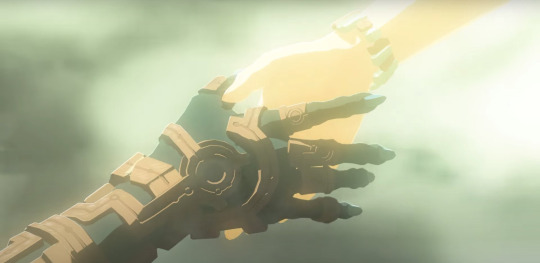

IT’S THE SAME HAND
This is the single illustration of the ancient Interlopers that we have pretty much at all. It’s from the Twilight Princess manga. The Interlopers, or the Dark Interlopers as they’re sometimes called, were powerful magic users who tried to take control of the Sacred Realm and were subsequently banished. Banished to the Twilight Realm.
The Interlopers became the Twili. And I think the Zonai were the Interlopers.
We don’t know much about the Zonai, but we do know two things: They were “strong magic wielders” (from the Zelda fandom wiki), and they disappeared. The stories match.
And honestly, what better way to subvert the theme of an endless cycle of light versus dark than to explore the people who discovered the in-between?
#honestly I thought this was a crack theory until I found that panel#on another note I’ve started to seriously consider the practicality of a conspiracy board to figure this shit out#but I decided that’s what tumblr is for#totk#loz totk#totk link#botw totk#totk trailer#totk theory#nintendo direct#loz#loz botw#loz tears of the kingdom#loz tp#loz twilight princess#twilight princess#legend of zelda midna#legend of zelda#tears of the kingdom
2K notes
·
View notes
Text
So how does Mihawk know where to find Shanks on this random island? He must have Shank's vivre card! In that case Shanks must completely trust Mihawk. But why would an Emperor give a Warlord a surefire method of locating him? Why would Shanks trust Mihawk and why would Mihawk lower his guard to accept a drink from Shanks despite them technically being enemies? Because of their history of homoerotic duels as young men which turned them from enemies to friends to lovers to whatever the fuck they got going on now. In this essay I will
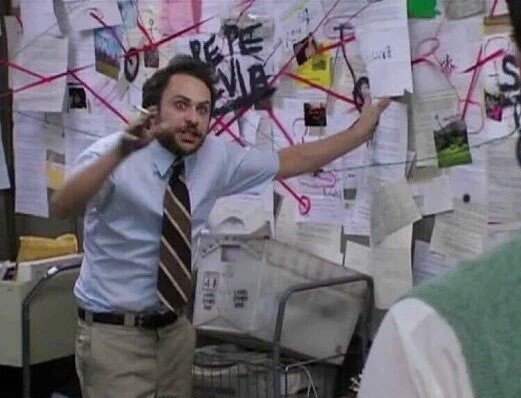
#if youre reading this ive been reblogging and adding more thoughts check it out uwu#one piece#mishanks#shanks#dracule mihawk#i title this “beginning of the mishanks conspiracy pipeline” or “trying to explain mishanks to someone who doesnt know what one piece is”#akataka
331 notes
·
View notes
Note
Seeing Twitter users recommending the People Make Games documentary as a good way to get insight on the issue is so….
I know, I’m always extremely disappointed whenever I come across someone who thinks it’s the end all be all explanations regarding the Studio ZA/UM situation.
Recommending that video always comes with a heavy caveat from me that the person needs to stop around the 40 minute mark since the interviewer shows a very clear bias that’s unbecoming of a journalist.
Regardless, now that more people are finding out about these layoffs, which might take out members of the studio that have been there since the beginning, it could finally help smack some sense into those Twitter users that actually thought, FOR SOME REASON, Rostov, Kurvitz, and Hindpere were lying for shits and giggles rather than seeing what's ACTUALLY going on which is that the investors have a very obvious agenda against the real wronged party. Hopefully this'll also open their eyes to how the People Make Games video fed into this twisted narrative that Kurvitz was somehow at fault/responsible for the theft of his own IP, but that might be asking too much from their concrete brains. Here's hoping though!
#disco elysium#studio za/um#za/um#people make games#and I’m not even getting into Bratt’s response to the criticism he got#this man deleted so many YouTube comments that pointed out the inconsistencies and bias#it’s such a reddit conspiracy theory but at the time I briefly thought Kompus paid him off to push the narrative in his favor#now I’ve talked about this before in a post from almost a year ago#but i truly believe Bratt’s heart was initially in the right place but let his anger cloud his judgement#after kurvitz rightfully denied him a way to wrap up his video in a neat little bow cause he knew the studio would use his words against hi#something in Bratt must've snapped cause all the blame got pushed on Kurvitz for no reason other than he felt slighted by his response#it's kinda tainted PMG's work for me b/c moving forward I'll have doubt if the story truly is being accurately reported#my response#mp
223 notes
·
View notes
Text
i’m genuinely of the belief that the megamind sequel/tv show was meant to premiere on nickelodeon in like 2011 alongside their other spinoff shows, but then got shelved after the movie flopped financially and has been sitting around in some archive gathering dust until peacock decided to release it as “new content.”
like, can we just look at the visual evidence alone?
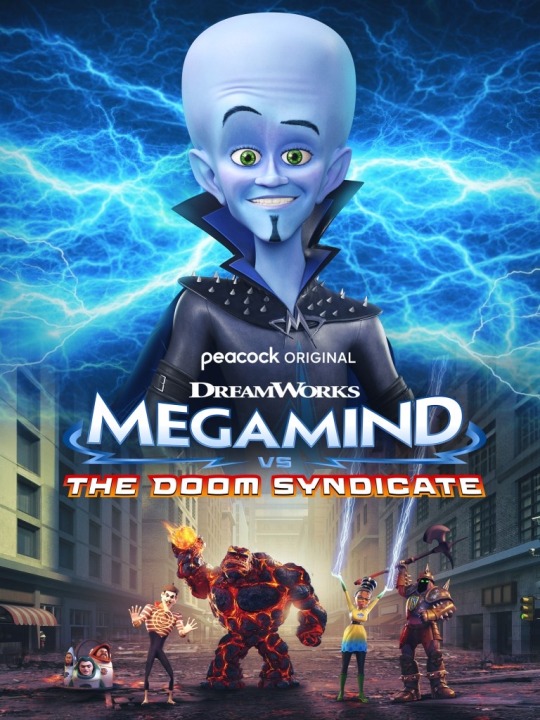
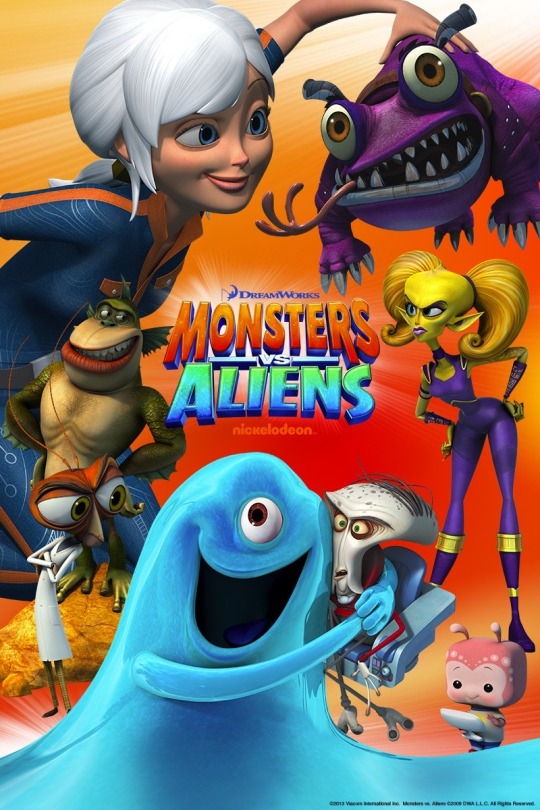
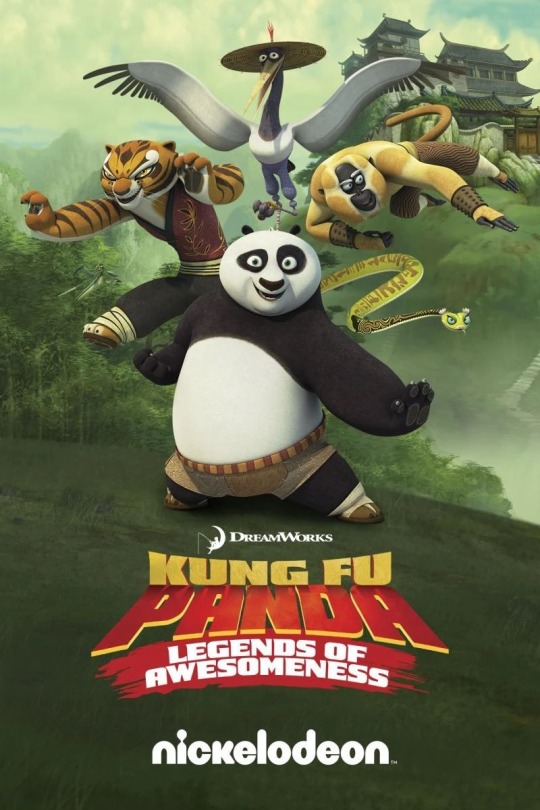

he fits right in with this lineup. peacock, i’m onto you
#megamind#megamind sequel#megamind vs the doom syndicate#dreamworks#peacock#megamind fans grab your giant robots of world domination or whatever#why does megan mind look like he’s from a ps2 game 😭#the fact that the animation is a major downgrade from a nearly 15 year old movie……#the replacement of famous main voice actors with ppl trying to imitate them……#they thought they could play us for fools. us! the megamind hive!#i’m cracking this case wide open baby#they did NOT just make this shit. this has to be recycled#new conspiracy theory dropped#my post#23
235 notes
·
View notes
Text
It’s a conspiracy theory until it’s not 😆
145 notes
·
View notes
Text
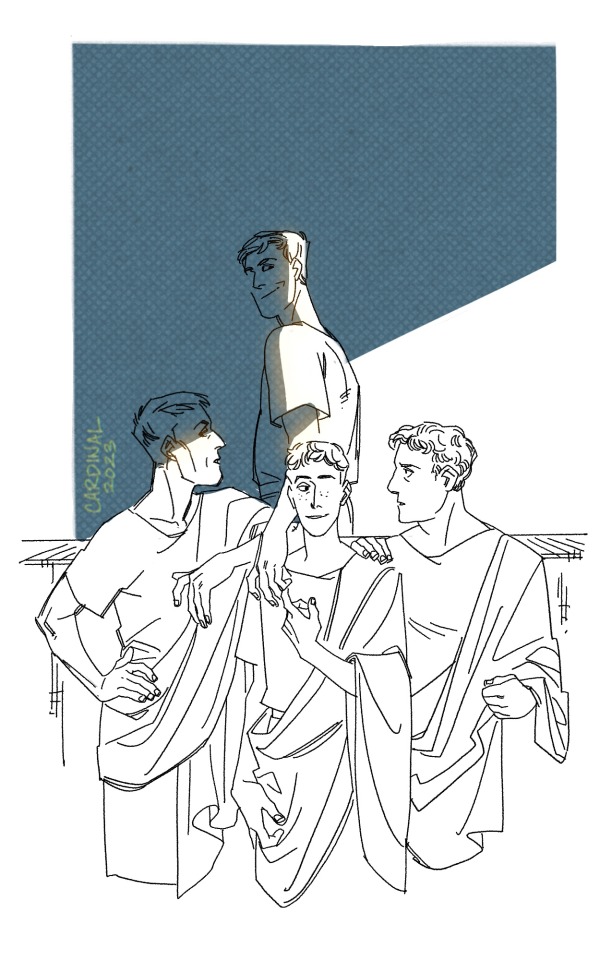
Crassus, Caelius, Cicero, Catiline, Conspiracy
boy howdy these four sure are something. not featured in this soup of C names, Caesar! what on earth happened here.

Plutarch, Crassus

Sallust on Crassus, Ronald Syme

Patron and Client, Father and Son in Cicero's "Pro Caelio"

Crassus' New Friends and Pompey's Return, Eve J. Parrish

Catullus and His World, T.P. Wiseman

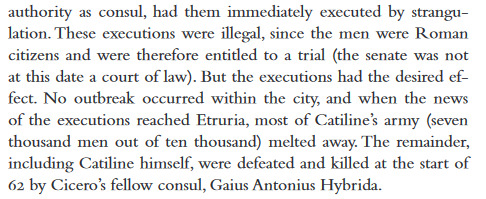

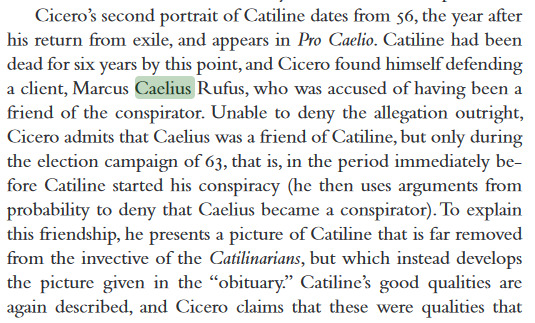
Cicero's Catilinarians, D.H. Berry
#flash back to several years ago when I said I could never retain info on Catiline. Turns out the missing link was Crassus lmao#about halfway through drawing this i realized hbo rome era james purefoy would make a really good catiline#which is. not a good thought. bc when i start figuring out casts is when i start thinking thoughts like 'oh what if i did a comic'#conspiracy spotted. absolutely no survivors found here. good grief. we got whatever is going on with caelius. also some kind of divorce#but actually. hey cicero. HEY CICERO. I HAVE SOME QUESTIONS. FOR YOU ACTUALLY---#i remember kaine told me about the executions but i did not fully appreciate. exactly what any of it meant in context. i have context now!#i should've been drawing the man with fucked up wall shadows the entire time. my god.#drawing tag#roman republic tag#catiline#Lucius Sergius Catilina#have i never. tagged him by his full name here. i should draw him more#cicero#marcus tullius cicero#marcus licinius crassus#marcus caelius rufus
319 notes
·
View notes
Text
This is going to be corny as hell, but I've just started binging The X-Files for the first time, and my god, this show is so good??!! Where has it been all my life??
#i just watched episode 8 which was clearly inspired by the thing (1982) and i was fangirling so hard#but every episode has been great#it makes me want to google all the conspiracy theories#oh and also agent mulder is hot af fight me on this#the x files#tv shows#quiet breeze talks#thoughts#tv
175 notes
·
View notes
Text
PSA: the bots are getting sneaky
Hey guys just fyi, I haven’t seen anything about this, but I don’t get a follower notification when a bot follows me anymore.
My follower count will magically go up, but my activity doesn’t notify me of being followed by them. But when I click on my list of followers, there they all are.
At first I thought this was an issue with my tumblr specifically, but I still get notified when other people follow me, so I think that the bots just found a work around.
#Thought you’d like to know#You have to manually click your followers list and remove them#sorry#spam bots#tumblr bots#bots#Tumblr#spam messages#hellsite#psa#important#this is important#signal boost#important stuff#important things#Boost#reblog#conspiracies#the bots are back#conspiracy#bots on tumblr#bots are annoying#bots be gone#bots are everywhere#bot trouble#AI#bots go away#followers#scams#tips
262 notes
·
View notes
Text
Randomly thinking about “tolerate it” (narrator voice: it was not random) and how under the cloak of fiction it is ostensibly inspired by works like “Rebecca” (which Taylor said she read during the 2020 lockdowns I believe?), with the line of “you’re so much older and wiser” indicating that the speaker is significantly younger and inexperienced compared to the person she’s speaking to and a pretty direct reference to the plot of the book.
But I saw something somewhere once that stuck with me about how it might not be referring to relative age between the characters but chronological age as in the passage of time in a relationship. And that made me think about how in a contemporary context, it might not necessarily be referencing an actual age gap between the two characters, but rather a sarcastic or cynical response to the man’s claims that he has matured (“you’re so much older and wiser [than you were before/than you were when we met/etc.]”), which then made me think about that line in relation to the woman. And that it could be taken like, “you act like you’ve matured so much in our time together and like you know everything, while I’m supposedly still stuck as the girl I was when we first met.”
Which then made me think of the “right where you left me” of it all and did you ever hear about the girl who got frozen time went on for everyone else she won’t know it and the bit in Miss Americana where she talks about how celebrities get frozen at the age at which they got famous, and how she’s had to play catch up in a lot of ways not just in her emotional growth but kind of in general. (Which also made me wonder if she’s ever been called out for immaturity/lack of curiosity/lack of education about things in her life…)
Which then made me think about the rest of the song, and @taylortruther’s posts yesterday about “seven” and “Daylight” and the way Taylor idealizes her youth yet contrasts it with an almost sinister reality in its wake, and the line, “I sit by the door like I’m just a kid,” because the discussion raised that her relationship let her recapture some of the childlike joy and wonder she’d lost. So this line is a double-edged sword: the speaker sits by the door with childlike hope that the person will come home and cherish her, but on the darker side, feels like the child dealing with the monsters she doesn’t have names for yet and the feelings of isolation she felt as she aged.
I’m not saying the song is necessarily autobiographical; like most of the songs on folkmore, it’s clearly a fictionalized story based on media she’d consumed and created, but we know a lot of the fictional songs were infused with her own feelings and experiences and… This idea swirling in my head picked up steam and now I kind of can’t stop thinking about it. Sorry but I’m a little obsessed now.
Like maybe it might start to shed light on why she identified so strongly with the novel in the first place…
#the third eye has been opened#😵💫#like tolerate it was always a difficult song#even when we learned it was based on Rebecca it obviously took on new meaning post-joever#and especially in light of ttpd#but the thought spiral i went on last night when i started thinking about all these connections#and the evermore of it all#I’m Charlie at the conspiracy board again#writing letters addressed to the fire#me thinking too hard about Taylor lyrics#evermore my beloved#tolerate it#i kinda gave myself the ick with all this 😵💫#because of the ttpd of it all coming up#and i feel like i remember interviews where Taylor said joe was so well-read especially about like world events and politics and stuff#and supported her when she wanted to start speaking up (not getting into that)#but just based on ~vibes now I wonder if that was like a sore point too at some point#which again i have no proof of but just like… experience with pretentious millennial art bros lol#oh man oh man oh man#this feels like some sort of huge revelation at 1:00 am#when i started writing this lol#eta: when I queued this in the middle of the night i didn't see all the excellent discussion about the seven/folklore posts#so all of you who have been posting about them this morning consider yourselves tagged too!
110 notes
·
View notes
Text
I've got a question to someone more Mathematically Learned than me:
What is the current Edge Of Human Knowledge in regards to the origins and fundamentals of the natural world? What's the current thread that most people are trying to follow to get down to like. The exact reason for the nature of the universe? I've heard that in the first second directly after the big bang, things were quote "a little weird," unquote. And I want to know what that means. I'd like to know what gaps in our knowledge of physics we are most focused on trying to fill right now.
#text#random thought#physics#STEM#im just gonna tag people who might search for this shit#theoretical physics#conspiracy theories#uhh#NASA#MIT#fuckin uhhhhhhhhh uhh who else uhhhhh#nerds#science#learning#math#thats all i got#please help me smart people im academically helpless and need the strong embrace of your hot wet muscley brains :)
184 notes
·
View notes
Text
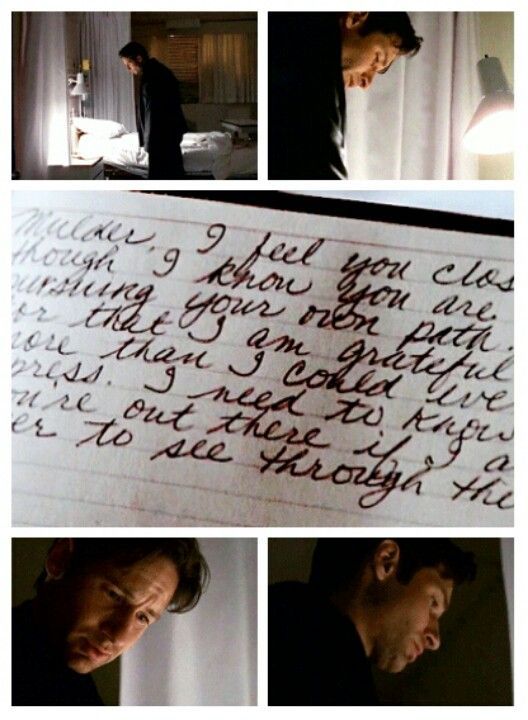
The X Files (1993) Memento Mori
S4E14
The horrible truth behind Scully's illness is revealed: she has cancer and may die. Such has been the fate of a dozen other women who, last year, introduced themselves as abductees and made claims of being with Dana on an alien space ship. Mulder must find a cure, and fast.
*This is the episode for which Gillian Anderson won the Best Actress Emmy.
#The X Files#tv series#1997#scifi#mystery#thriller#conspiracy#crime#drama#illness#cancer#Dana Scully#Fox Mulder#diary#thoughts#truth#Best Actress Emmy#awarded#Gillian Anderson#David Duchovny#Memento Mori#S4E14#just watched
166 notes
·
View notes
Text
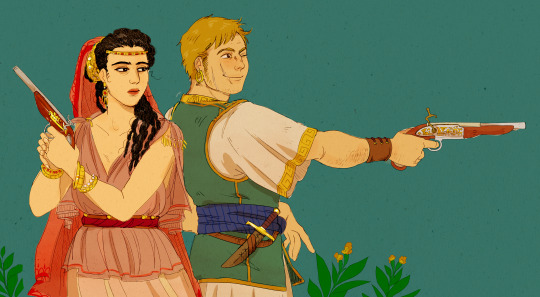
Irene and Sophos enjoying some time off, an illustration inside my gift fic 'Between the mountains and the sea' for @saessenach for the @hamiathesgiftexchange!
#(I realize Irene shouldn't be holding a musket like it's a glock...but I thought it was funny so I kept it 🤭)#<< note contained inside the fic... I stand by it#queen's thief#a conspiracy of kings#saessenach#queue#hamiathes's gift exchange
216 notes
·
View notes